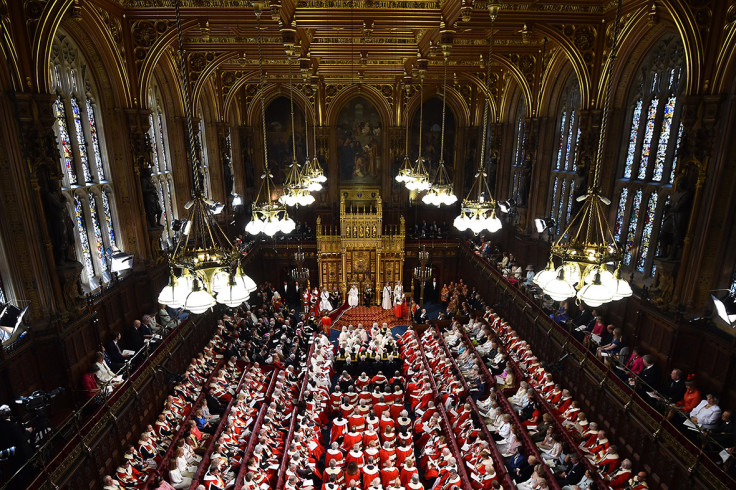House of Lords flexes muscle again as it asks for Scotland Bill to be put on hold

The House of Lords has done it again. Its Economic Affairs Committee is demanding the Scotland Bill be put on hold until the rules on new tax and spending powers are clarified. It said that more details were needed on the fiscal framework.
The committee warned that the Bill, which had the potential to "fundamentally change" the UK, was being progressed with "undue haste" and should not proceed further until the devolution fiscal framework was published. Details of the funding package that will accompany the legislation are still being negotiated by the Scottish and UK governments.
The legislation, which was cleared by the lower house earlier this month is due for its second reading in the Lords on 24 November. Although the UK government has said that talks on the fiscal framework are expected to be completed "as soon as possible", Scotland's Finance Secretary John Swinney has cautioned that his government will only approve the bill if it had a "fair fiscal framework agreement."
The House of Lords committee chairman Lord Hollick said: "The Scotland Bill has the potential to fundamentally change the UK and impact on us all both politically and economically. It is crucial that what is proposed is stable and sustainable.
"Parliament is being asked to pass the bill before we are told full details about the fiscal arrangements that will underpin this new era of devolution - that cannot be right. We are calling on the progress of the bill to be halted until the details are agreed and published," he added. "That would at least allow peers the opportunity that MPs were denied of scrutinising and amending this important legislation as informed participants."
The findings by the committee include the following:
- the UK and Scottish governments should agree "simple and clear rules" and establish the "maximum" for Scottish government debt;
- the "no-detriment" pledge where neither the Scottish, nor the rest of the UK would be worse off after the new devolution settlement, was unworkable and a "recipe for continuing conflict."'
- the Barnett Formula was not a sustainable method to calculate funding and should be replaced with a "needs-based" funding formula;
- there should be much greater transparency and scrutiny of how funding is allocated to the devolved parliaments; and
- the chairpersons of the finance committees of the Westminster and the devolved parliaments should meet regularly to ensure "effective and coordinated scrutiny."
Barnett formula should not be replaced
The point on the Barnett Formula however met with resistance from Scotland. Swinney, Scotland's deputy first minister said he did not agree with many of the conclusions of the committee, including its proposal to replace the Barnett formula.
He however agreed with the committee that the fiscal framework was essential to delivering the Smith Commission proposals "in both letter and spirit." "Of course, the key vote that matters will not be in the unelected House of Lords - it will be in the Scottish Parliament."
Swinney added: "We have made it clear that we will only support a Legislative Consent Motion on the Scotland Bill if there is a satisfactory and fair fiscal framework agreed between the Scottish and UK governments - we will never sell the people of Scotland short."
A UK government spokesman echoed much of what Swinney said, adding: "Delivering Smith and retaining the Barnett Formula was a clear manifesto commitment for the government. The framework will be based on the principles set out in the Smith agreement."
He also said: "Both governments have agreed not to comment until an agreement is reached." Both governments hope to complete the talks as soon as possible to give their respective parliaments time to consider the framework and the Scotland Bill, he added.
© Copyright IBTimes 2025. All rights reserved.






















